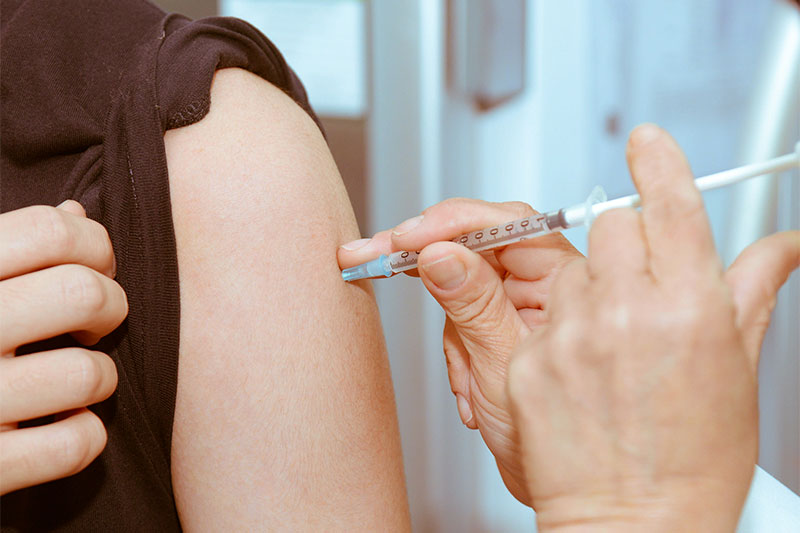
The one thought that did not cross your mind too often except for flu season and during your medical annual checkups was getting vaccinated. And now while vaccines are a hot topic and a hot situation during the pandemic, you are seeing pictures of people getting vaccinated and if you got vaccinated, you may have wondered why the upper arm muscle is the place for it. Why can’t they vaccinate your legs or in veins in your body? Therefore, government officials and medical specialists use the phrase ‘roll up your sleeve’ to get the COVID19 vaccine. Why not ‘roll up your pant legs or wear shorts during the warm weather’ to get your shot?
There is an explanation as to why you can only get your shots in the upper arm muscle as opposed to muscle, versus your leg, underneath a layer of fat, or veins, or anywhere else in your body. It also does not matter what type of vaccine you are getting whether it is the Pfizer, Moderna, or AstraZeneca, or Johnson and Johnson brand – or a vaccine for polio, tetanus, HPV, or measles – it must be injected into the deltoid which is the upper arm muscle that is fleshy and thick. Occasionally you could get it in your upper thigh as well, but the upper arm is preferred.
The only exception is that some vaccines are nasal as in some cases, you can get a mist sprayed up your nose instead of a needle. Back in the day, sugar cubes for polio vaccines were given orally. But now, the shots that you get are only given in the deltoid muscle.
The Deltoid Muscle Is Strong And It Is The Best Place For A Vaccine Injection
You have to remember that when you are being given any kind of vaccine, you are being given messages to your immune system to fight off any disease that comes into contact with you. Unless in any other areas of your body, the deltoid has ample blood supply where it can send out the vaccine to the rest of the body. The muscle has immune cells known as dendritic cells, and those take up the antigens quite fast and put them on their surface, like a flag.
Then the dendritic cells end up moving into the lymph nodes which is the heart of the immune system. They meet with the B and T cells which are the white blood cells that help to defend the body against certain pathogens. Therefore the dendritic cells show their flag to the B and T cells until they recognize that particular antigen. When that happens, they multiply which signals the B cells to begin making antibodies. Therefore, this helps to block the pathogen so that they cannot get into the cell.
If the efficacy of the vaccine is lower, such as the case with the COVID19 vaccine in the case with the Delta variant, in particular, the pathogen can break into the cell. However, at the same time, the pathogen still does not have much opportunity to replicate because the vaccines still do their job for the most part. That means you have a small amount of the virus in you which means your immune system was able to attack and block the pathogen from replicating any further even if it got into the cells.
That explains that you are not only less likely to pass the disease onto others. However, because of the vaccine, you may at worst end up with a common cold-like symptom rather than ending up in the ICU and on a ventilator. That is evidence that the vaccine saves lives. The only time the vaccine will not work is when it comes to the elderly with very weak immune systems as well as those who are on a high dose of immune-suppressing drugs. Besides, no vaccine is 100% either. But in order for them to work, they have to be injected in the area of your body that will help with cell migration which is the upper arm muscle.



